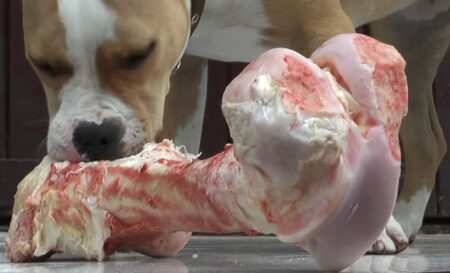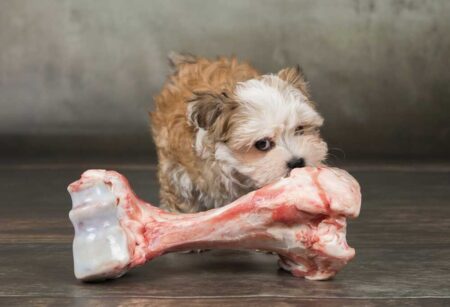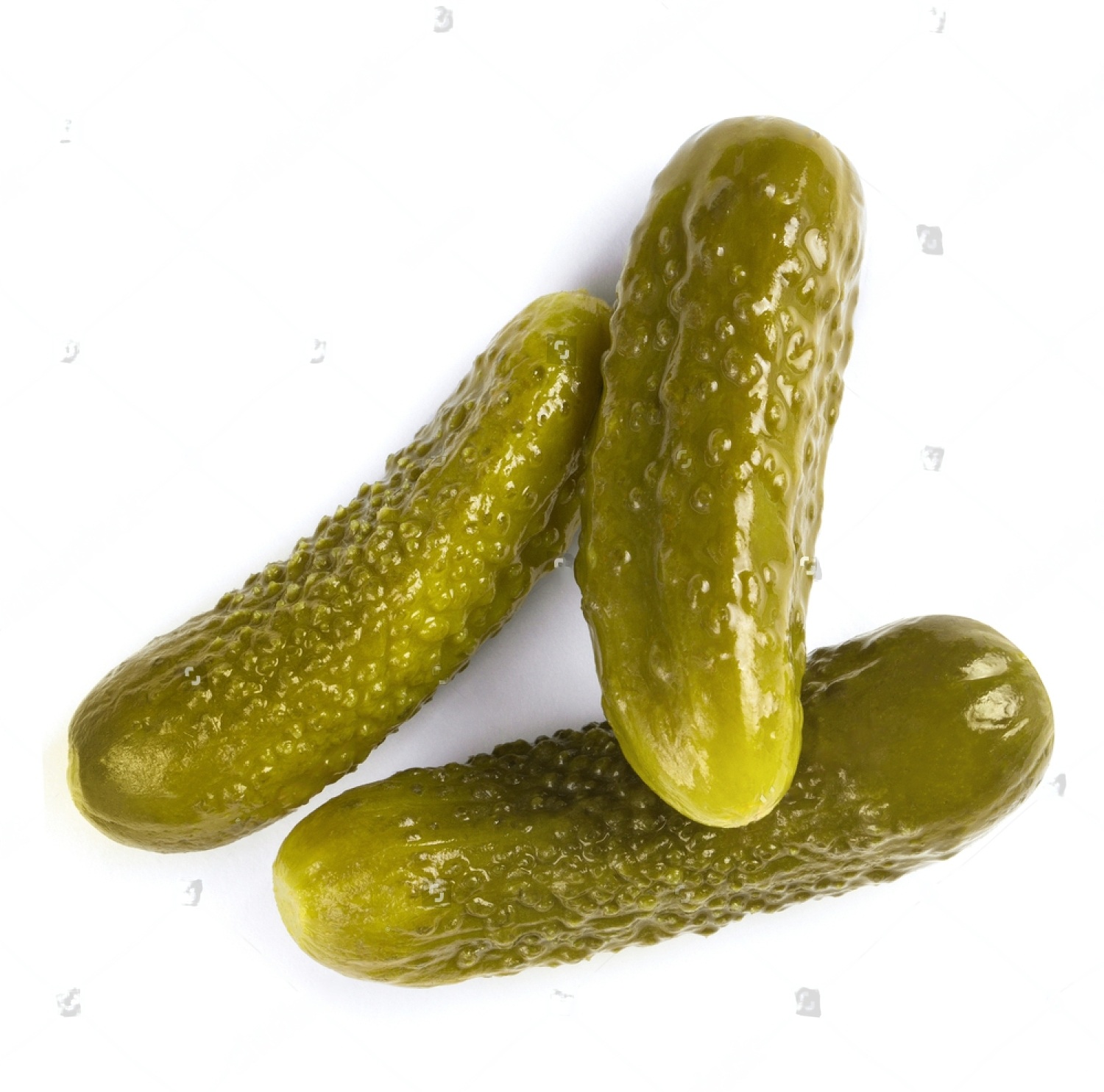
Real Reasons Why Dogs Love Bone
There’s nothing quite like the love a dog has for their favorite bone. It’s more than just a tasty treat – a bone satisfies a dog’s innate desire to chew and provide mental stimulation.
But, did you know there are some fascinating scientific explanations for why dogs adore their bones? From their sensory experience to how it taps into their evolutionary history. Understanding the real reasons behind your dog’s obsession with bone can give you a deeper appreciation of them.
Real Reasons Why Dogs Love Bone
Here are some real reasons why dogs love bones:
1. Ancestral Instincts:
Dogs are descendants of wolves, who regularly gnaw on bones to extract nutrients and satisfy their instinctual desire for raw meat. This ancestry is deeply ingrained in dogs, and chewing on a bone fulfills their need to hunt and scavenge.
2. Sense of Smell:
Dogs have an incredible sense of smell, up to 100,000 times more powerful than humans. Bones, particularly raw bones have distinct scents that stimulate a dog’s olfactory senses, making them irresistible to our four-legged friends.
3. Dental Health:
Bones help maintain dental hygiene by scraping away tartar and plaque buildup, keeping teeth strong and clean. This not only benefits a dog’s dental health but also provides a satisfying sensation of chewing, relieving boredom and reducing destructive behavior.
4. Mental Stimulation:
Boredom can lead to destructive behavior in dogs, but bones provide a challenging and engaging experience. As they work to gnaw and chew their way through a bone, dogs are also exercising their brains, using their problem-solving skills to figure out how to get every last morsel of flavor from their bone.
5. Emotional Comfort:
Just like a child with a security blanket, bones can provide emotional comfort to dogs, particularly when they are feeling anxious or stressed. The act of chewing can release endorphins and promote relaxation, making bones a great way for dogs to unwind and de-stress.
6. Taste:
Dogs have fewer taste buds than humans, but that doesn’t mean they don’t appreciate a tasty treat. Bones, especially raw bones, can provide a rich, satisfying flavor that dogs love.
Type of Bones Should You Give Your Dog
When it comes to giving your dog a bone, there are a few different types to consider:
- Raw Bones: Raw bones are packed with nutrients and have a natural, satisfying flavor. But, they do come with a higher risk of bacteria, so ensure to clean them thoroughly and keep an eye out for potential choking hazards.
- Marrow Bones: Marrow bones are large, hollow bones filled with soft, fatty tissue known as marrow. They can be a tasty treat for dogs but, be cautious of bones that have been cooked, as they can become brittle and pose a choking hazard.
- Dental Chews: Dental chews are specifically designed to clean teeth and promote dental health. They are generally made from a softer material that makes them less likely to cause damage to teeth or gums.
- Bully Sticks: Bully sticks are made from dried and braided beef muscle tissue. They are long-lasting and durable, making them an excellent option for aggressive chewers. But, they can be high in calories and fat, so be sure to monitor your dog’s intake.
- Antlers: Antlers are a natural source of calcium and other minerals.
It’s important to remember that not all bones are safe for your dogs, so ensure to consult with your veterinarian before introducing any new bones to your dog’s diet.
Why Do Dogs Like Bone Marrow?
Dogs love bone marrow for several reasons:
- Rich Flavor: Bone marrow is fatty and rich in flavor, making it a delicious treat that dogs can’t resist.
- Nutritional Value: Bone marrow is packed with essential fatty acids, amino acids, and other nutrients that can support joint health, brain function, and skin and coat health.
- Mental Stimulation: The act of digging out the marrow from the bone provides a challenging and mentally stimulating activity for dogs, which can help prevent boredom and destructive behavior.
- Social Bonding: Sharing a bone with other dogs or with their human owners can create a special bond and reinforce social relationships.
- Ancestral Instincts: Wolves, the ancestors of modern-day dogs, would often crack open bones to access the nutrient-rich marrow, making it a deeply instinctual part of a dog’s behavior.
- Soothing and Calming: Licking and chewing on bone marrow can have a soothing effect on dogs, similar to how humans might enjoy a tasty dessert.
- Natural Dental Care: Chewing on bones can help clean your dog’s teeth and gums by scraping away plaque and bacteria, similar to how we brush our teeth to maintain oral hygiene.
- Chewing Satisfaction: Dogs have a strong natural urge to chew, and bone marrow provides a satisfying and long-lasting chewable treat that can keep your dog busy and content.
In short, bone marrow is a healthy, nutritious, and deeply satisfying treat for dogs, catering to their primal instincts and providing a range of benefits for their general well-being.
SEE ALSO: Are Shiba Inus Aggressive as They Seem?
How Often Can You Give Your Dog Bones?
The frequency at which you give your dog bones depends on the type of bone and the individual needs of your dog. Here are some general guidelines:
- Raw Bones: Small, raw bones can be given to your dog up to three times a week, while larger bones can be given once or twice a month.
- Marrow Bones: Marrow bones can be given once a week, or less frequently depending on your dog’s chewing habits.
- Dental Chews: Dental chews can be given daily to help maintain dental health, but should be monitored to prevent overeating.
Why Do Dogs Chew Bones at Night?
There are a few reasons why dogs might chew bones at night:
- Energy Release: Dogs are naturally active creatures, and chewing bones can be a great way to release excess energy, especially at night when they are less active.
- Nighttime Routine: Dogs are creatures of habit, and many dogs will associate bedtime with a chew session. This can provide them with a sense of comfort and routine.
- Quiet Time: Nighttime can be a quieter, less stimulating time for dogs, which can make chewing a more appealing activity.
- Boredom: If a dog is not sufficiently mentally or physically stimulated during the day, they may turn to chewing at night as a way to alleviate boredom.
- Teething: Puppies and young dogs may chew more at night as a way to alleviate teething discomfort. This is a natural process and should lessen as they mature.
What Are the Benefits of Bones for Dogs?
Bones can provide many benefits for dogs:
- Dental Hygiene: Chewing on bones can help your dog scrape away tartar and plaque from their teeth, promote dental health, and prevent gum disease.
- Mental Stimulation: Chewing on bones can provide a challenging, engaging activity for your dog, helping to prevent boredom and destructive behavior.
- Nutritional Benefits: Raw bones provide your dog with important nutrients like calcium, phosphorous, and other minerals that can support bone and joint health.
- Stress Relief: Chewing on bones can be a calming activity for dogs as it helps them reduce stress and anxiety.
- Joint Health: Chewing on bones can strengthen the muscles in a dog’s jaw, which can help support joint health and prevent conditions like arthritis.
- Bonding: Providing your dog with a bone can be a great way to bond with them, as it creates a shared activity that you can both enjoy.
Why is My Dog So Attached to His Bone?
Your dog’s attachment to his bone could be due to a variety of reasons:
- Possessive Instincts: Dogs are instinctively possessive of their possessions, and bones are no exception. This behavior can be a holdover from their ancestors, who would guard their food and other resources.
- Chewing Pleasure: Chewing is a natural and comforting behavior for dogs, and a good bone can provide hours of chewing pleasure, satisfying their urge to gnaw and keep them occupied.
- Comfort and Security: Dogs often develop emotional attachments to their favorite items, including bones. These objects provide a sense of comfort and security, similar to how a child might cling to a favorite stuffed animal.
- Taste and Smell: The taste and smell of a bone can be very appealing to dogs, particularly if it’s flavored with marrow or other flavorful elements. This can lead to a strong attachment to the bone and an unwillingness to share or give it up.
- Health Benefits: As mentioned previously, bones can provide numerous health benefits for dogs, including dental hygiene, mental stimulation, and joint health. Your dog may have formed an attachment to his bone because he associates it with these positive experiences.
- Learned Behavior: If you’ve rewarded your dog with bones in the past or given him access to them regularly, he may have learned to associate bones with positive experiences, leading to a strong attachment.
SEE ALSO: 10 Facts About the African Wild Dog (One of the World’s Most Endangered Mammals)
FAQs
Q. What do dogs love about bones?
Dogs love bones for their satisfying flavor, dental benefits, stress relief, joint health, and bonding potential all of which contribute to their innate desire to gnaw and chew on these delectable treats.
Q. Why are bones good for dogs?
Bones provide dogs with numerous health benefits like improved dental hygiene, mental stimulation, joint health, stress relief, and bonding opportunities which make them a rewarding and beneficial part of a dog’s routine.
Q. Are There Any Risks to Giving My Dog Bones?
While bones offer numerous benefits for dogs, they can also pose risks such as choking hazards, digestive issues, and broken teeth if not given in moderation and under supervision.


